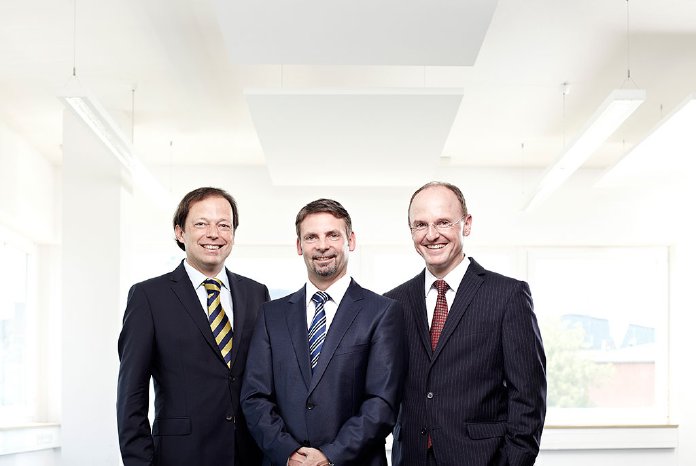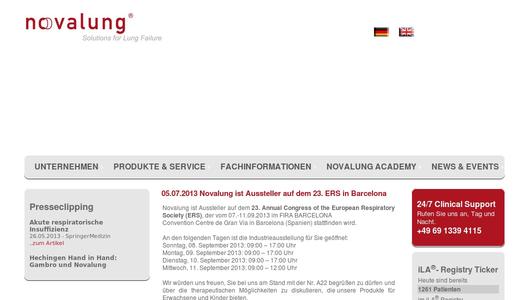- Novalung GmbH and Medos Medizintechnik AG jointly establish Xenios AG as a common holding company.
- Xenios AG creates synergies in administration, research and development, regulatory affairs and quality management.
- Xenios AG strives to become Market and Technology Leader in Extracorporeal Therapies and will address new global markets and business areas.
The inception of Xenios AG marks a milestone in the long and successful collaboration of Novalung GmbH and Medos AG. Xenios AG, which was recently founded by the two medical device companies, is focused on developing and manufacturing innovative devices for minimally invasive lung and heart support. At Xenios AG approximately 220 team members design, manufacture, and market groundbreaking solutions for lung failure as well as surgical and interventional solutions for the treatment of heart disease.
"Our team unites many decades of entrepreneurial, clinical, scientific and technical expertise" According to CEO Josef Bogenschütz, commenting on the Xenios brand structure: "The Xenios brands "novalung", "medos" and "xenios pediatrics" stand for extracorporeal support systems focussed on heart and lung failure".
To meet the increasing need for patient-friendly solutions, and to enable access to additional international markets and business areas, the headquarters in Heilbronn has been expanded to house a brand new cutting-edge cleanroom facility. The inception of Xenios AG creates synergies in administration, research and development, regulatory affairs, and quality management. The resulting human and financial resources will be utilized to become the technology and market leader as a global player in extracorporeal therapies.
Revolutionary Solutions, A Trusted Team While product portfolio and headcount increase dramatically, many good things do not change with the inception of Xenios AG:
Novalung GmbH and Medos AG will remain separate legal entities under the umbrella of Xenios AG and continue to serve their customers as trusted partners in their individual markets. They will maintain their well established customer relationships in the critical care and perfusion markets and continue to represent innovation and medical and technical expertise and safety.
In recent years Novalung and Medos have created many groundbreaking innovations to serve patients and caregivers in close collaboration with hospitals and academic institutions. "We meet the individual needs of patients and caregivers of various specialties and speak their language. We jointly create new treatment options comprised of devices, training and clinical support" Bogenschütz explained.
In the areas of their core technologies the companies have helped significantly improve patient outcomes and reduce treatment costs with new artificial lungs, blood pumps, vascular access devices, temperature control systems and biocompatible surfaces.
"Our innovations mark the advent of a revolutionary development in extracorporeal therapies." says Josef Bogenschütz, CEO of Xenios AG. "We are certain that with Xenios AG we be able to make further positive changes for all stakeholders."
Continuity in the Xenios management team is key to being able to pursue these goals effectively: Josef Bogenschütz and Dr. Georg Matheis continue to run Novalung GmbH while Josef Bogenschütz and Dr. Jürgen Böhm remain in charge at Medos AG. All three manage Xenios AG together.
Dr. Matheis noted that "The founding of Xenios AG to integrate Novalung and Medos is a milestone that logically follows the acquisition of Medos AG by Novalung's owners two years ago.
This holding company will help us realize our vision, to create new solutions for lung failure. I am confident that, in addition, the Xenios technology platform will open the door to addressing new business areas."
Medos also expects benefits from the close collaboration: "Xenios AG allows us to bundle our strengths, which leads to a strong and intelligent platform strategy. Our clinical partners can expect new, exciting and innovative therapy solutions to address their clinical demands and the medical needs of their patients", Dr. Jürgen Böhm explained.


